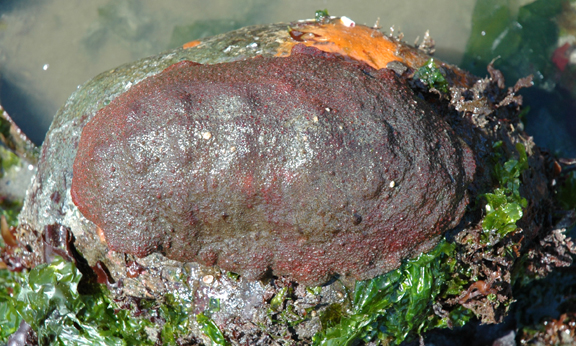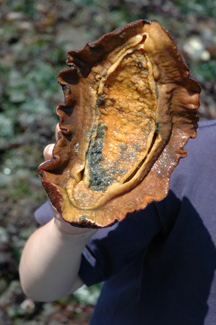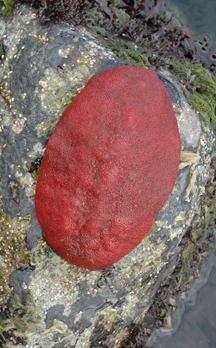
![]()

Photo 1: Giant Pacific Chiton on a rock
Giant Pacific Chiton: Cryptochiton stelleri
Common names: gumboot chiton, red-brick chiton
Photo 2: Underside of a Gumboot Chiton
This is the largest chiton found on Vancouver Island. It's colors vary from red-brick to brown. Like all chitons it has 8 bony plates (shells) covering its softer body. These shells are known as butterfly shells when they are washed up on the beach. Because of its size and coloration, this chiton becomes easy not to notice as some plant-like growth on a boulder (though chitons are in fact animals). The underside is generally orange or yellow.

Photo 3: Another Giant Pacific Chiton with bright red coloration.
This chiton is a herbivore and grazer. It feeds off of encrusting algae. It is a nocturnal animal, hiding during the day and feeding at nights.

